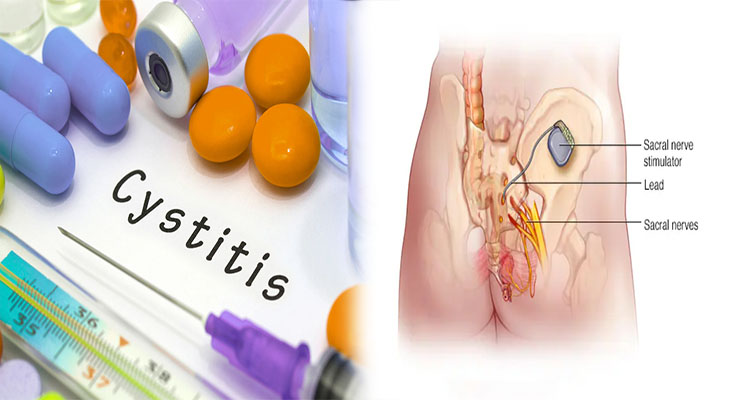Interstitial cystitis is a chronic condition that affects the bladder, causing discomfort, pain and other symptoms. The latest treatment for interstitial cystitis is a combination of hydrocortisone and B-12. There are two forms of treatment for interstitial cystitis: oral antibiotics and intravesical instillation therapy (IVI).
The latest treatment for interstitial cystitis is a combination of hydrocortisone and B-12.
The latest treatment for interstitial cystitis is a combination of hydrocortisone and B-12.
Hydrocortisone is a steroid, which means it helps reduce inflammation in your body. It’s often used to treat skin conditions like eczema or psoriasis and can also be prescribed to help with arthritis pain (though this isn’t recommended if you have asthma).
B-12 is a vitamin that helps keep the nervous system healthy by producing red blood cells; deficiency can lead to anemia–a condition where there are too few red blood cells circulating in your body–so if you’re taking hydrocortisone along with B-12 it could be beneficial for both conditions at once!
There are two forms of treatment for interstitial cystitis
There are two forms of treatment for interstitial cystitis: medication and surgery.
Medication can be used to reduce pain, inflammation and frequency of symptoms. Medications include:
- Antibiotics (for infections)
- Anti-inflammatory drugs (to reduce swelling and pain)
If you have interstitial cystitis, your doctor may recommend changes in your diet or activity level to help reduce symptoms. For example:
- Avoid foods that are high in salt, sugar or fat; eat fruits, vegetables and whole grains instead
- Drink plenty of water throughout the day * Exercise regularly
What Is Interstitial Cystitis?
Interstitial cystitis, also known as painful bladder syndrome, is a chronic bladder condition that affects the lining of your bladder. The symptoms of interstitial cystitis can include pain and pressure in the pelvic area, burning during urination, frequent urination and sometimes blood in urine or stool.
The exact cause of interstitial cystitis is unknown but it may be related to an immune system malfunctioning. Some women who have had pelvic inflammatory disease (PID) are more likely to develop this problem later in life because their immune systems have been weakened by this infection.
Interstitial Cystitis: Diagnosis and Treatment
How Do You Know If You Have Interstitial Cystitis?
Interstitial cystitis is a chronic condition that affects the bladder and causes pain, pressure, and discomfort. You may experience symptoms such as:
- A frequent need to urinate–sometimes more than 10 times per day
- Pain or discomfort when you urinate
- Blood in your urine (hematuria)
If these symptoms are persistent and bothersome enough to interfere with your daily life, then it’s time to see your doctor.
Learn more about the latest treatment
Interstitial cystitis is a chronic condition that causes painful bladder sensations, including pressure and discomfort. It can also cause blood in urine, frequent urination and pelvic pain.
In recent years, doctors have developed several treatment options for this condition including:
- Oral medications – These drugs help reduce inflammation in the bladder lining. They include amitriptyline (Elavil), doxepin (Sinequan) and phenelzine sulfate (Nardil).
- Topical agents – These topical creams or ointments are applied directly to the skin around your urethra when you’re experiencing painful symptoms of IC/BPS. The most common topical medications are lidocaine and clonidine creams; however there are many other options available depending on your situation such as capsaicin cream or botulinum toxin injection into nerves supplying sensation from both ureters down into pelvis area where their branches meet together near base of spine before entering back wall cavity between two vertebrae where all nerve endings pass through hole called pudendal canal which extends down into lower extremities where it continues branching outwards towards toes etc…
If you are suffering from interstitial cystitis, it is important to get treatment as soon as possible. The latest treatment is a combination of hydrocortisone and B-12 which has shown great results in treating the condition. You can learn more about this new treatment by reading our blog post or contacting us directly at (888)-846-8327





